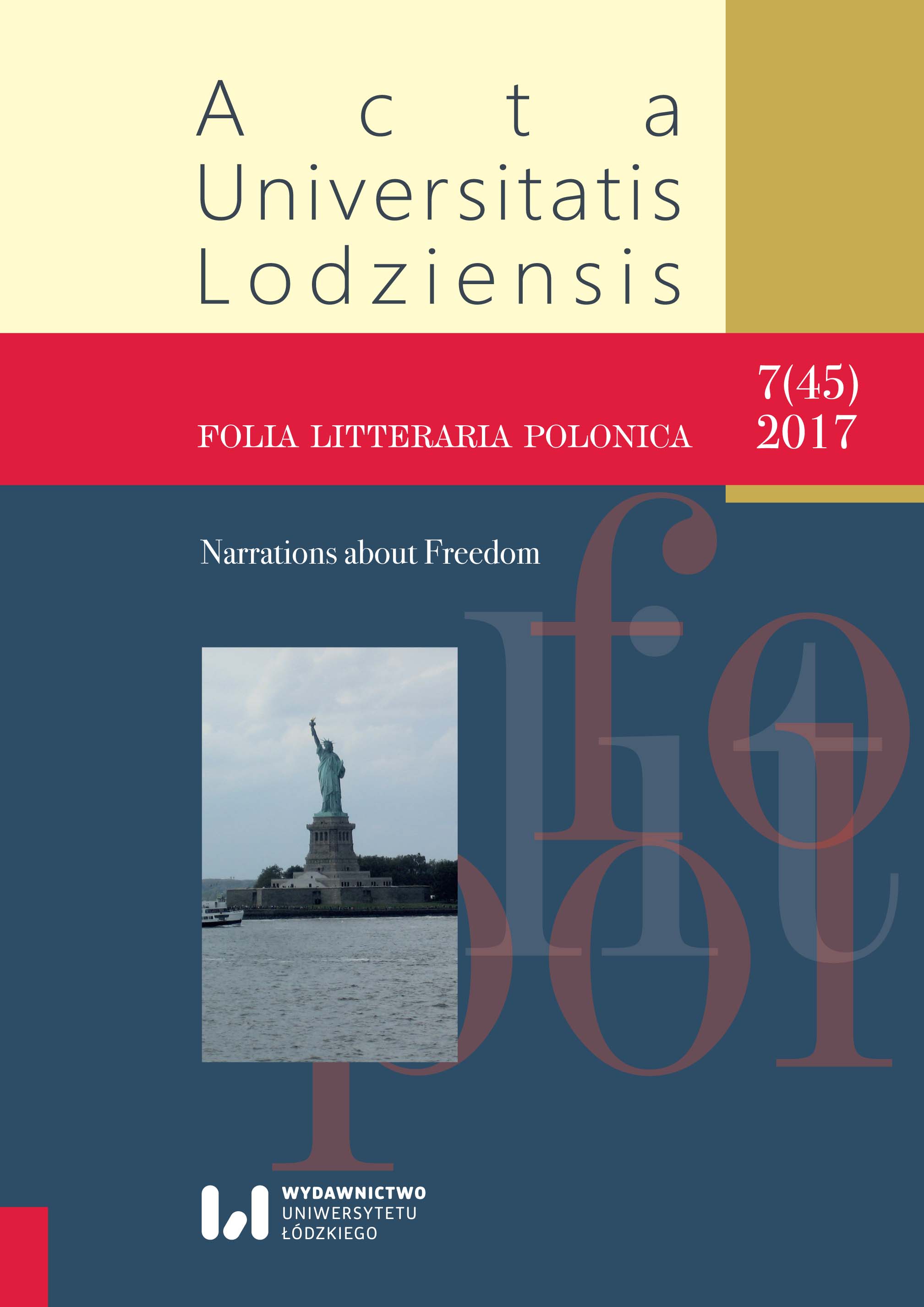Intellectual limitation of freedom? The issues of libertas
in the nationalistic reception of Italian fascism in
the Second Polish Republic (based on the examples
of journalistic publications)
Intellectual limitation of freedom? The issues of libertas
in the nationalistic reception of Italian fascism in
the Second Polish Republic (based on the examples
of journalistic publications)
Author(s): Paweł SobczakSubject(s): Theory of Literature, Politics of History/Memory
Published by: Wydawnictwo Uniwersytetu Łódzkiego
Keywords: fascism; nationalism; ideology; freedom; interwar period
Summary/Abstract: The limiting of personal freedom in interwar Italy resulted directly from the fascist approach to the state-individual relationship. The idea of leaving the citizens the broadest individual freedom, and limiting state law activities to the minimum was completely alien to fascist ideologies. The goal of the article was to consider how the problem of freedom in a fascist state was treated by right-wing supporters of that ideology in Poland. For the analysis, I use, e.g. the journalism of W. Jabłonkowski (Amica Italia), R. Rybarski (articles published in Myśl Narodowa), A. Łaszowski (Analiza łez krokodylich), K. Zbyszewski (a column series Ryżową szczotką), A. Nowaczyński (Sempre avanti), J. Waldorff (Sztuka pod dyktaturą), and F. Goetel (Pod znakiem faszyzmu). As the interpretative context, I also used the poetry of A.M. Swinarski, and a play by Nowaczyński entitled Cezar i człowiek.
Journal: Acta Universitatis Lodziensis. Folia Litteraria Polonica
- Issue Year: 45/2017
- Issue No: 7
- Page Range: 25-48
- Page Count: 24
- Language: English

